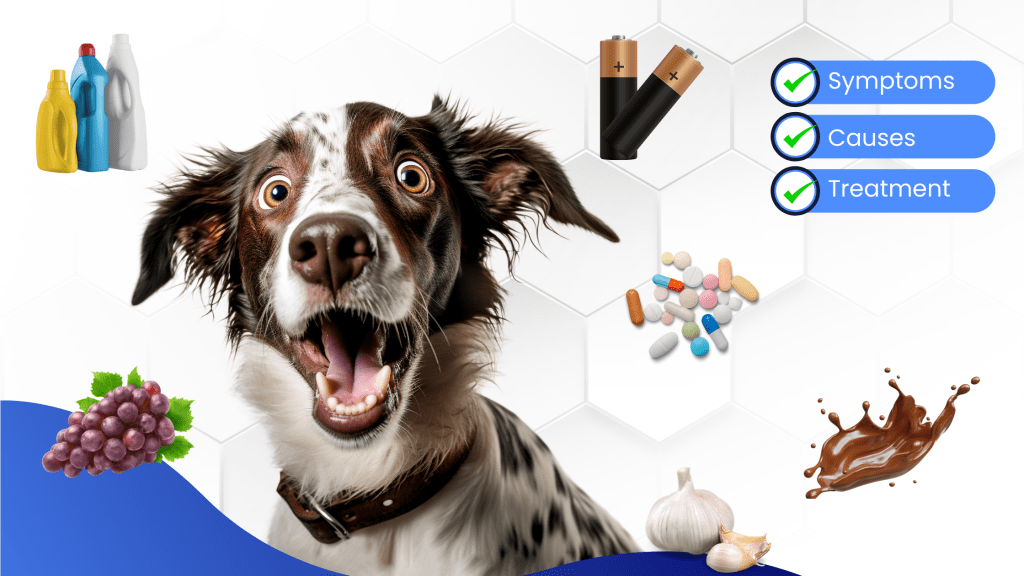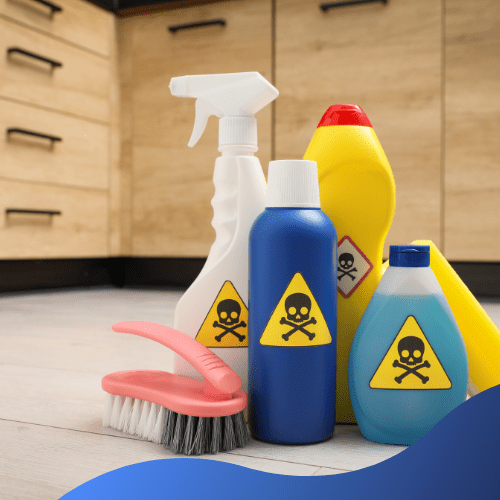
Keeping your pets safe with tips for pet poison prevention.
As responsible pet owners, ensuring the safety and well-being of our furry companions is a top priority. With Pet Poison Prevention Month underway, it’s crucial to educate ourselves about common household hazards and take proactive steps to protect our pets from potential dangers. In this blog post, we’ll explore essential tips and strategies for pet poison prevention to keep our beloved animals safe and healthy.
Identifying Household Hazards:

Toxic Foods:
Many foods that are safe for humans can be harmful or even fatal to pets. Avoid feeding your pets:
- Chocolate
- Grapes
- Raisins
- Onions
- Garlic
- Caffeine
- Alcohol
- Xylitol
These can pose serious health risks.
Household Plants:
Certain indoor and outdoor plants, such as lilies, azaleas, rhododendrons, and poinsettias, are toxic to pets if ingested. Be mindful of the plants in your home and garden, and research their toxicity levels to ensure they’re safe for your pets.


Medications:
Keep all medications, both prescription and over-the-counter, securely stored and out of reach of pets. Ingesting human medications can lead to poisoning and adverse reactions in animals.
Household Cleaners & Chemicals
Store household cleaners, detergents, pesticides, and other chemicals in a locked cabinet or high shelf to prevent pets from accessing them. Even small amounts of these substances can be harmful if ingested or inhaled by pets.

Poisoning Symptoms:
The symptoms may vary depending on the type of poison your cat or dog may have consumed, typical symptoms may include:
Gastrointestinal Issues
- Vomiting
- Diarrhea
- Excessive drooling or hypersalivation
- Nausea
- Loss of appetite or refusal to eat
Neurological Symptoms
- Seizures
- Tremors
- Weakness or lethargy
- Disorientation
- Lack of coordination
Respiratory Distress
- Difficulty breathing
- Coughing
- Rapid or labored breathing
Changes in Behaviour
- Agitation or restlessness
- Depression
- Excessive thirst
- Unusual vocalizations
- Hiding or seeking isolation
Physical Symptoms
- Dilated pupils
- Pale gums
- Jaundice (yellowing of the skin or eyes)
- Unexplained bruising or bleeding
- Rapid or irregular heartbeat
Preventing Pet Poisoning:
Pet-proof your home: Conduct a thorough inspection of your home to identify potential hazards and pet-proof your living spaces accordingly. Install childproof locks on cabinets, secure electrical cords, and remove or secure any small objects that could be swallowed.
Supervise outdoor time: When allowing your pets outdoors, supervise them closely to prevent them from coming into contact with toxic plants, pesticides, or other harmful substances.
Be mindful of pet products: Choose pet products, including toys, bedding, grooming supplies, and flea and tick preventatives, that are specifically designed for your pet’s species and size. Avoid using products intended for humans or other animals, as they may contain ingredients that are toxic to pets.
Check out our online poison guide
During Pet Poison Prevention Month and beyond, let’s work together to create a safer environment for our furry friends and prevent unnecessary accidents and injuries. Together, we can keep our pets happy, healthy, and out of harm’s way.
Thank you for reading, until next time…
